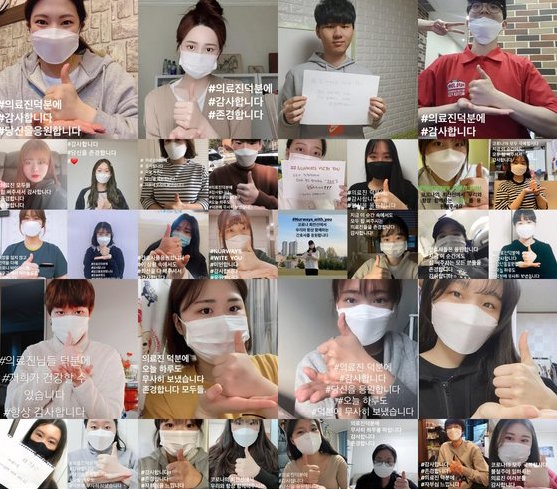
I am sure everyone is all familiar with some hashtag challenges from social media. In Korea, the challenge began with Ice Bucket Challenge, the relay donation campaign for helping patients with Lou Gehrig’s disease. It aimed to attract social attention and awareness in a particular issue. Although the challenge itself seemed like a passing fad, its easy access to fun and play is now spreading around social network service (SNS). It became a new part of our culture. Various challenges are going on, ranging from public interest or donations such as #thankstochallenge to support medical staffs on the front line of COVID-19 to promotion and marketing such as dance challenges and unique challenges.

People are eager to participate in a sudden short trend. Soon after, those who react to unusual things lose interest and move on to the next playground. As a result, the hot trend cools down quickly. As you can see, it is similar to riding a roller coaster. A new challenge culture is related to generation Z’s lifestyle. Generation Z (Gen Z) refers to the generation that was born between 1996 and the early-mid 2000s, following millennials. Youths are close to digital devices as they are born. They use smartphones in every way like communication, shopping, and free time throughout the day. They even watch Youtube more than TV. Their belief in getting fun, a sense of belonging, and information by joining challenges led them to be the leaders of these trends. To them, it is just one of their fun play.
As if there is a long line in front of the rides, young consumers voluntarily join fashionable events or challenges. The longer line the ride has, the more young are attracted. #Athomechallenge enjoying everything at home due to social distancing is one example of a trending challenge. #Rememberchallenge is another one. People reenacted their old pictures with their parents and shared those with their followers on social media platforms. They just became one part of the trend with no pressure and are likely to associate with each other. Uniqueness and difference are also an essential point.
As COVID-19 has rapidly changed our day to day life, people also want to deviate from their static reality by getting a new stimulus. They look out for short variations and exotic collaborations beyond common sense. They are surviving the gloominess of COVID-19 through the thrill and fun of the roller coaster lifestyle.
Nahyun Lee
Asia Journal
(Los Angeles Times Advertising Supplement)

